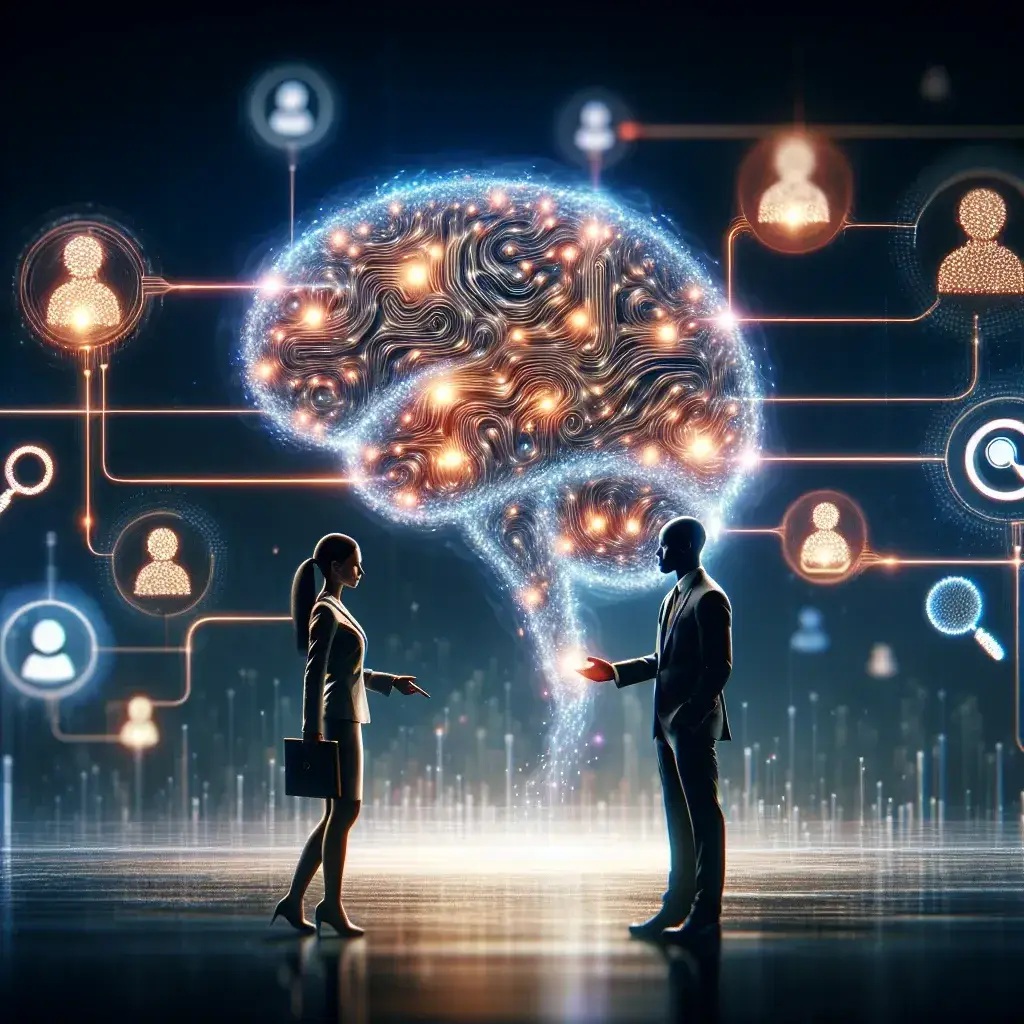Introduction
The advent of Artificial Intelligence (AI) has been nothing short of revolutionary across various industries. One area where AI is making significant strides is in talent acquisition and recruitment. From automating repetitive tasks to enhancing the candidate experience, AI is changing the way organizations find and hire talent.
The Role of AI in Recruitment
1. Automated Resume Screening
Traditionally, recruiters have had to sift through piles of resumes to find suitable candidates. This time-consuming process is now being streamlined by AI-driven tools. AI can quickly scan resumes for keywords, qualifications, and experience, automatically filtering out unqualified candidates and presenting recruiters with a shortlist of the best matches.
2. Enhanced Job Matching
AI algorithms can analyze job descriptions and match them with candidate profiles more accurately than ever before. By understanding the nuances of various roles and the specific skills required, AI can ensure a better fit between candidates and job openings, minimizing the chances of a mismatch.
3. Predictive Analytics
AI can utilize predictive analytics to identify potential future performance and job satisfaction of candidates. By analyzing data from previous hires and current employees, AI systems can forecast which candidates are most likely to succeed and stay with the company long-term.
4. Chatbots and Virtual Assistants
Recruitment chatbots are increasingly being used to engage with candidates. These AI-driven bots can answer common queries, schedule interviews, and even conduct initial screening interviews. This not only frees up recruiters’ time but also provides candidates with quick responses, improving their overall experience.
Benefits of Using AI in Talent Acquisition
1. Increased Efficiency
AI can handle repetitive and mundane tasks, such as resume screening and scheduling interviews, with exceptional efficiency. This allows recruiters to focus on more strategic aspects of hiring, such as engaging with candidates and assessing cultural fit.
2. Reduced Bias
Human biases, whether conscious or unconscious, can influence recruitment decisions. AI systems, when properly designed and trained, can minimize these biases by focusing solely on objective criteria. This promotes a more diverse and inclusive workplace.
3. Cost Savings
By automating various aspects of the recruitment process, AI can significantly reduce the cost per hire. Companies can save on recruitment agency fees, advertising costs, and the time spent by HR staff on manual tasks.
4. Improved Candidate Experience
AI can provide candidates with faster responses and more personalized communication. From chatbots that answer questions 24/7 to tailored job recommendations, AI can enhance the candidate journey, making a positive impression on potential hires.
Challenges and Considerations
1. Data Privacy
AI systems rely heavily on data, which raises concerns about privacy and data security. Companies must ensure that they are compliant with data protection regulations and that candidate information is securely stored and processed.
2. Algorithmic Bias
While AI has the potential to reduce bias, it is not immune to it. If the data used to train AI algorithms contains biases, the AI system may perpetuate them. It’s crucial to use diverse and representative data sets and regularly audit AI systems for fairness.
3. Candidate Reluctance
Some candidates may be wary of AI-driven recruitment processes. They might feel uncomfortable interacting with chatbots or worry about their resumes being screened by algorithms. Addressing these concerns through transparent communication and maintaining a human touch in the process is essential.
Conclusion
AI is undeniably transforming the landscape of talent acquisition and recruitment. With its ability to increase efficiency, reduce bias, lower costs, and improve the candidate experience, AI holds immense promise for the future of hiring. However, it is crucial to navigate the challenges and ethical considerations carefully to fully harness the benefits of AI in recruitment.

